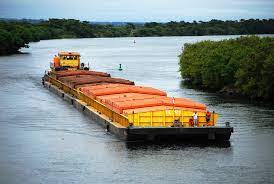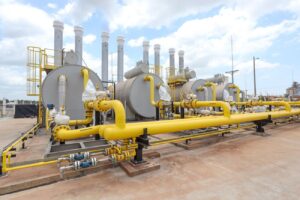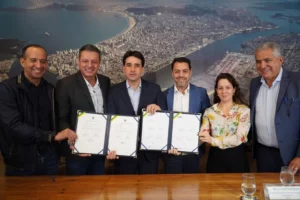In Brazil, the company will use trucks powered by Compressed Natural Gas (CNG) in its fleet
The theme of sustainability is increasingly present in the corporate environment. Therefore, it is essential for companies to seek and implement solutions and technologies that minimize or avoid damage to the environment. With this mindset, Mercosul Line, a Brazilian carrier of the CMA CGM Group, invests in reducing environmental impacts in its operations.
To fulfill this agenda, Mercosul Line will incorporate five trucks powered by Compressed Natural Gas (CNG) into its vehicle fleet. This fuel is part of a cleaner energy generation and is aligned with the goal of the CMA CGM Group to incorporate alternative fuels into its energy matrix in order to achieve Net Zero Carbon by 2050.
CNG is derived from petroleum and has the potential to reduce CO2 emissions by up to 15% when compared to diesel-powered vehicles, according to a study conducted by a heavy vehicle manufacturer.
This is the first step in Mercosul Line’s decarbonization journey. In the future, the goal is for vehicles to transition to biomethane, a gas generated from the decomposition of organic compounds that can reduce pollutant emissions by up to 90% compared to conventional fuel, according to the International Center for Renewable Energies/Biogas (CIBiogas).
In recent years, Mercosul Line has been expanding container transport operations through railway routes, complementing road transport.
Mercosul Line conducted tests with a truck from its fleet, and after six months of operation, the vehicle maintained the same excellent level of customer service and load capacity.
“Compressed Natural Gas (CNG) is widely used in Brazil, with refueling stations located along all highways and major cities. Operation with these vehicles will occur in the Southeast region, starting from the port of Santos, with the possibility of including Multimodal service, as depending on the route, rail transport can be used in addition to maritime and road transport. We will be the first carrier in Brazil to use a fleet with this configuration. This project reaffirms the commitment of all employees of the CMA CGM Group to the environment, our customers, and the values of our company, which are Audacity, Excellence, Imagination, and Exemplarity,” emphasizes Cristhian Silva, Inland Procurement Manager at the CMA CGM Group.
For Gustavo Breder, Intermodal Manager of Mercosul Line, one of the greatest challenges was transitioning the energy matrix of road transport without impacting customers. “We are constantly evaluating opportunities to replace our fleet in order to reduce CO2 emissions, and with the help of partners, we have reached an important milestone. Today, with the new models and the number of cylinders installed per vehicle, we can achieve a performance similar, in terms of kilometers traveled, to that of a diesel vehicle. This allows us to maintain the level of service without the need to increase the fleet. Making the door-to-door chain of our customers increasingly ecological is a source of great pride and inspiration for us.”
“I am proud to be part of a company that prioritizes offering sustainable transport solutions. This initiative by Mercosul Line demonstrates the concern of the CMA CGM Group for the environment and the future of our planet,” concludes Nathaly Freitas, CEO of Mercosul Line.
Source: Guia Marítimo.








